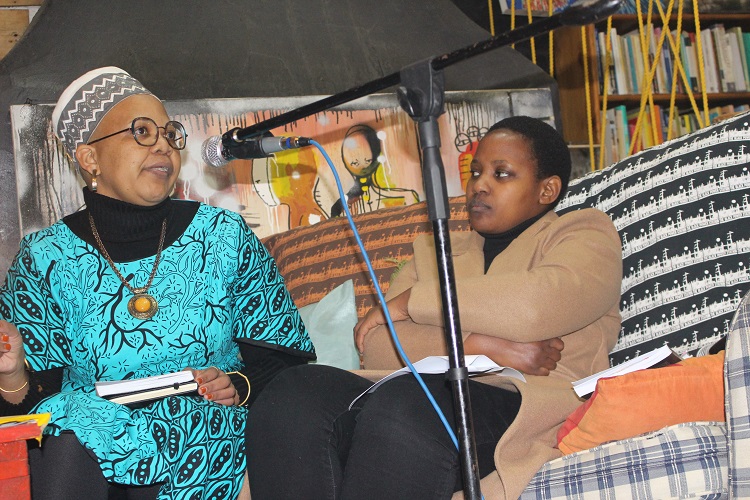By Benny Mojela
On 17 June, the Black Power Station hosted a historic event. The event included live music from Zimisto eRoofini and Zamani, and spoken word poetry from Dongadala Bemdiliza and Siyanda Kila. Central to the event was the launch of Guerillas and Combative Mothers: Women in the Armed Struggle in South Africa, by Siphokazi Magadla, Associate Professor and head of the Department of Politics and International Relations at Rhodes University.
Magadla interviewed 40 different women, starting in 2010 with Minister of Defence and Military Veterans, Thandi Modise. She became curious about the lives of women who became soldiers of Umkhonto we Sizwe (MK) and Azanian People’s Liberation Army (Apla) because her father was previously a soldier and her mother a psychiatric nurse.
“I grew up with my father as a soldier, and in 1996 he left SANDF before he was 40 and started hanging out with his friends and drinking,” Magadla said, adding that at that time, her mother told her of soldier patients who were dealing with post-traumatic stress disorder. She started to wonder what the lives of women combatants who fought against apartheid looked like before, during, and after the fighting. Why was it that none of them went on to rob banks or become alcoholics like their male counterparts, Magadla wondered.
“Most of them are under pressure to say they are stronger than men, but I didn’t want to glamourize their strength because that usually means the government will pay less attention to them regarding pensions and sponsorships for their children,” she added.
At the launch, Magadla spoke in conversation with her former student and current Rhodes University lecturer Zikho Dana, who asked whether, in the process of integrating guerilla soldiers into the SANDF, the anti-apartheid freedom fighters were humiliated in any way. Magadla’s response was that the manner in which freedom fighters were ranked along with the former apartheid soldiers was a humiliation. “You had people who were previously your enemies judging your competency and insisting on speaking Afrikaans,” she said.
She found that some veterans felt it unacceptable for them to have spent the best years of their lives fighting a system they now had to live under in the army. Nonetheless, the women former guerillas managed to bring transformation into the army. “They even liberated white women because previously they were not allowed to access certain places in the army or even engage in combat,” Magadla pointed out.
The book highlights a group of women combatants from different age groups and areas. She looks at women who went to exile, those who fought in the homelands, and those who fought in the township in the people’s war. She also expands the definition of combat to include even messengers and couriers. The book highlights the story of Major General Refiloe Jackie Sedibe, the first Black female to achieve the major general rank in the army. Sedibe was brought up by her uncle, an ANC member, later joining the ANC’s military wing uMkhonto weSizwe (MK) in 1964, before entering exile.
Magadla also spoke about Nokuthula Simelane, an MK member from Eswatini who was killed in 1983, but her remains were never found. In 2009, the Mpumalanga provincial government erected a statue in her honor, but it was vandalized. Magadla says, “When the racists attacked her statue, it’s like they were trying to kill her again.”
The event was a wholesome programme directed by Khanya Thonjeni, who also reminisced about her freedom fighter mother. “She joined the struggle because she wanted better wages”, he said. The owner of the Black Power Station, Xolile Madinda, thanked everyone for coming and being part of the great book launch.


